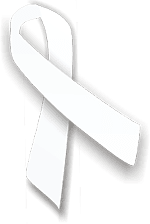On Dec 6, 1989 fourteen young women were killed at the Ecole Polytechnique, in Montreal, by twenty-five year old anti-feminist mad man Marc Lepine. He stormed into a classroom, separated the men from the women, and proceeded to shoot all nine of the female engineering students. Leaving into the crowded halls, he took as many women with him as he could before turning the gun on himself. The events rocked the country and created uproar in discourse surrounding violence towards women.
Over twenty years later, the wound is still deep for the victims who survived the attack, and violent crimes based on gender still occur. It is a problem with many faces: Malala Yousafzai, missing and murdered Aboriginal women, victims of domestic abuse, or women who happened to be walking down the wrong street at the wrong time, and met the destructive and life-altering force of someone’s misplaced anger manifested as a sexist act of brutality. It is important that none of these victims, and none of these crimes, are forgotten.
In 2009, Director Denis Villeneuve set out to make a film from the point of view of those who had lived through the 1989 massacre in Quebec. We spoke with lead actress Karine Vanasse when the film came out. Growing up in Quebec, Vanasse, who plays Valerie, had always been aware of the tragedy. Interviewing the survivors a few years later, it was obvious that “their story had never been told.”
In the midst of the intellectual debates inspired by the massacre, the lives touched were often forgotten. “We heard from so many of them [surviving victims] and they hadn’t been recognized .we wanted to make sure that they would all feel a bit of their own story in the two main characters,” explains Vanasse.
Many of you will see yourself in Valerie. She was maybe 21 years old, just on the brink of self discovery and an exciting career. Vanasse recalls her own experience of this tender age: “You don’t know who you are, you don’t know how to carry yourself, you respond to a way you think you should act, but you haven’t found your own way to describe yourself and to express yourself.” Looking at the victims she recognizes, “for those women to be in engineering school, it took a lot of character and personality to be there but at the same time I don’t think they realized what it represented. They were kids.” This is why the story is particularly affecting. Killed for being feminists did they even know what that word meant? They were just girls going to school and growing up.
Vanasse admits that when she was first asked the question, “Are you a feminist?” she felt uncomfortable answering and couldn’t articulate why there was this associated shame. However, self evaluation revealed that she had in fact been making choices throughout her entire life that were indicative of being a feminist. Being a part of this project re-evaluated what that term meant for her and watching this film will likely raise similar questions for you. For those of you who are unaware, being a feminist is simply the belief that women should have equal political, social, sexual, intellectual and economic rights to men.
Today, take a moment to remember the women who have suffered, and died, because we still live in a world where, as far as some people are concerned, being a woman is reason enough for discrimination, disrespect, and violence. As we fight those who uphold these flawed ideas, and band together to create awareness, we must also take time to remember the victims of these crimes, whose lives were sacrificed to an archaic, but still somehow frighteningly prevalent, mode of thinking. Seek out the film Polytechnique (you can rent it on iTunes), and as you watch it, join us and other Canadians today in saying, “Never again.”




 Follow Us On Instagram
Follow Us On Instagram
